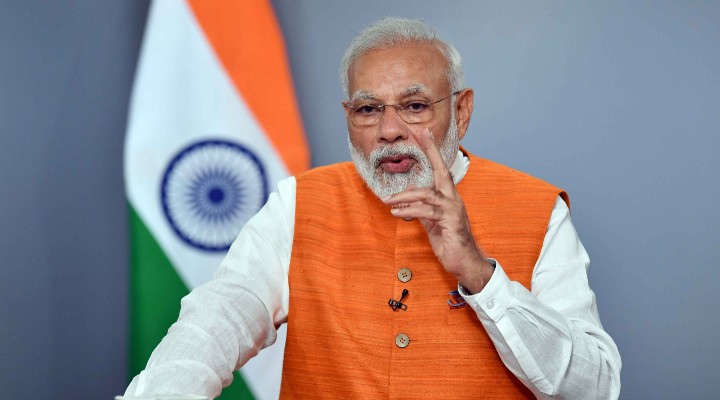Storied Italian football manager Arrigo Sacchi, who was never a professional footballer himself before going into coaching, offered this famous one-liner when someone questioned his qualifications: “I didn’t know that to become a jockey you first have to be a horse.” This retort seems to apply seamlessly to the ruling classes, who now go into politics immediately after graduating from university and without much, if any, experience in business or life. Unfortunately, unlike football coache
ches, the people running the government of whole states and countries might be able to do their jobs better if they had some genuine hands-on experience in the wealth-creating activities of their subjects.
The lack of such experience has been laid bare in the past two years, with alarming consequences for the retail industry. As the machinery of state clanked into action to crush a virus in early 2020, retail leaders in many APAC countries were quick to secure some victories, including wins against landlords in the area of rent relief. These early successes turned out to be a high watermark for the retail industry’s political influence. Since then, retail leaders have not been influential in policymaking. In fact, they have rarely been consulted, nor particularly heeded when their advice has been rendered.
What happened? In the past two years, political leaders, not just in APAC but just about everywhere, have taken advice only from their public health bureaucracies, which are not particularly concerned with business. This advice from public health officials is often not fine-tuned by their political masters to take into account its impact on businesses; for example, the effect repeated snap lockdowns might have on the operations of, say, fresh food retailers or restaurants, or the effect of sudden border closures on businesses dependent on tourism.
These kinds of decisions have repeatedly been made without consulting retailers and other stakeholders, and it is a problem the industry has to confront before retail is consigned to the ranks of such ‘old economy’ sectors as airlines and fossil fuels.
A large part of the problem has its roots in a trend that began some time ago: The modern political class has almost no experience running any kind of business, which makes politicians and bureaucrats insensitive to the needs of business operators. Thus, rules and regulations are imposed, chopped and changed almost without notice, usually with complete disregard for their impact on retailers.
A quick survey of the Asia-Pacific region makes the problem stunningly obvious.
In New Zealand, Prime Minister Jacinda Ardern doesn’t ever seem to have run a business or been involved in one. She is a career politician who has been in and around party politics almost continuously since graduating from university.
Across the Tasman, Australian Prime Minister Scott Morrison went into politics after a six-year stint at the Property Council and some dabbling in tourism promotion in both Australia and New Zealand. Not much business experience there.
Australia’s state government leaders are also mostly lifelong politicians. Victorian Premier Daniel Andrews is a career politician who was first elected to parliament at the age of 30. Queensland Premier Annastacia Palaszczuk was a policy adviser to government before she grabbed the opportunity to take the Queensland parliamentary seat occupied by her retiring father. In New South Wales, new Premier Dominic Perrottet was a commercial lawyer before entering politics. And Western Australia Premier Mark McGowan is a career politician who was in the Navy before entering local council politics and then stepping up from there.
Around Asia, the lack of business experience among leading politicians is just as obvious. Indian Prime Minister Narendra Modi has never had any serious connections with business, other than a disputed claim of having toiled in his dad’s tea stall as a child.
Singapore Prime Minister Lee Hsien Loong was an officer in the Singapore army. Malaysian Prime Minister Ismail Sabri bin Yaakob is also a career politician, although he did work as a lawyer for two years. Thailand’s prime minister, General Prayut Chan-o-cha, was a career military officer and his Cambodian counterpart, Hun Sen, fought alongside the Vietnamese army to get rid of the Khmer Rouge before becoming Cambodia’s prime minister. That certainly is life experience, but not business.
Elsewhere in the world, the same lack of business experience is just as prevalent. Canadian Prime Minister Justin Trudeau worked as a snowboard instructor and later taught high school maths before entering politics. Recently retired German chancellor Angela Merkel was a scientist.
And on and on it goes. You get the idea: Hardly anyone in authority has much of a clue about what it takes to run a store. The current crop of world politicians mostly have experience in one area: being politicians. They are no longer battle-hardened shopkeepers, factory workers, self-made men and women. In the past two years, they have taken advice from only one set of experts, who themselves have expertise and interest in only one area.
This is why it has become more important for retailers to have strong representation and input into policymaking. Complaining about high rents or restricted trading hours won’t cut it anymore. The presence has to be stronger, perhaps with the creation of new political parties or the nurturing of candidates who have genuine business experience and will go to bat for retailers.
Without such a presence, retailers going forward risk being constantly at the mercy of politicians without any interest or experience in their affairs, taking advice from technocrats who equally have no interest or experience in their affairs – just as has been the case for the past two years. As long as our governments are run by career politicians, this is the way things will go.

